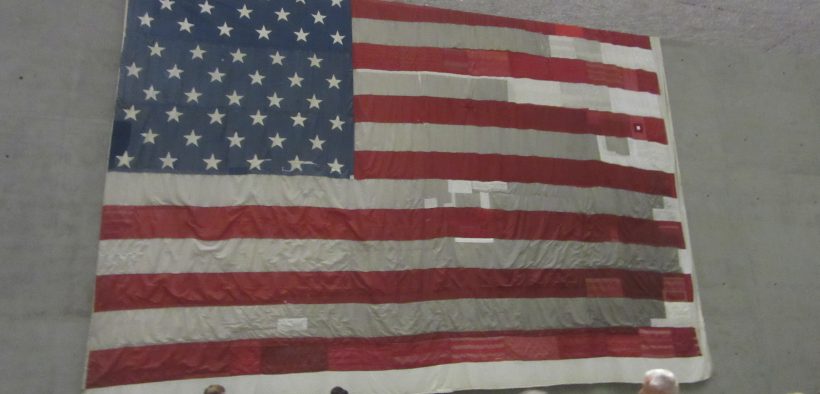A Reaction to Obama’s Recent Executive Order
Share

By Landon Baker
On January 5th, President Barack Obama enacted executive actions meant to address the United States’ problems with gun violence–an issue which Congress has remained stagnant on. The actions targeted loopholes that allow people to purchase guns without any safeguards to ensure that they are neither mentally unstable nor violent criminals. Provisions of Obama’s executive actions included directing the Bureau of Tobacco, Alcohol, Firearms and Explosives (ATF) to require gun sellers to be licensed and to conduct background checks, ordering the FBI to develop a more efficient and accurate background checking system, and supplying these bureaus with more funding in order to meet these provisions.
Despite the high national support for universal background checks with 92% of all Americans supporting such measures including 87% of Republicans, Republican politicians attacked Obama for his executive actions and threatened to withhold DOJ funding.
Paul Ryan accused Obama of “subverting the legislative branch” and characterized the move as “a dangerous level of executive overreach, [that] the country will not stand for.”
But such political attacks make little sense when the base the politicians are supposed to represent support gun control measures.
Executive orders (or the broader term executive actions) are far from an unprecedented phenomenon. Every president (except William H. Harrison who died one month into his presidency) has utilized executive orders to administer policy. Contrary to the misconception being perpetuated by Republican politicians that executive orders are some subversive tactic to enact legislation without the legislature, they are actually a way for the president to specify how the executive branch (which includes organizations such as the FBI and ATF Bureau) should carry out law. Since laws are often written with enough ambiguity to be subject to alternative interpretations, executive orders serve as a powerful tool. Executive orders do not pose some existential threat to our government and with most Americans supporting universal background checks, it’s confounding to see Congress remain so stubbornly obstructive to any progress on this issue.
The sad fact may be that Congress no longer represents us. A 2014 study by Princeton and Northwestern found that legislative results most often aligned with the desires of corporate interest groups and wealthy private interests rather than those of average Americans (50th percentile of income) and mass-based interest groups. Rulings like Citizens United have allowed lobbying groups such as the NRA to exchange campaign support for laws that benefit gun manufacturers. So despite Americans, even 84% of gun owners, wanting universal background checks, the threat of losing reelection keeps Congress paralyzed.
This inaction is costly. By December 23, 2015, almost 13 thousand Americans had died from gun violence that year, over 750 of who were minors. And this is not a problem shared by other developed countries. In 2011, U.S. gun deaths dwarfed all other developed nations with 3.55 deaths per 100 thousand. In comparison, Portugal had the second highest rate with 0.66 deaths per 100 thousand.
Obama’s executive actions serve to carry out policy that the plurality of Americans want, but that a corrupt political climate continues to neglect.
